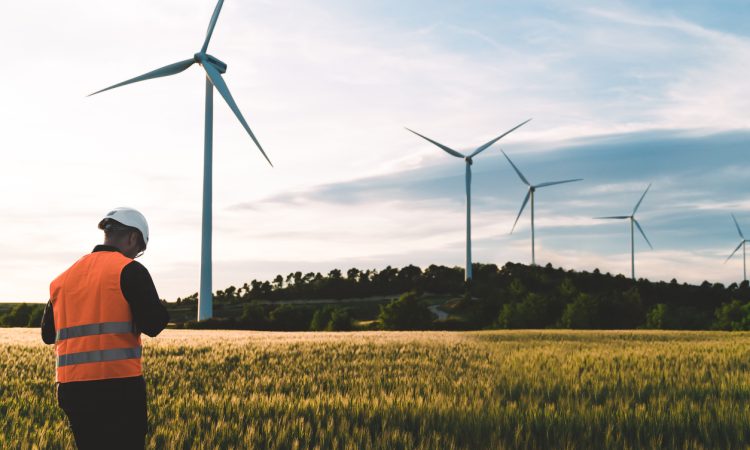Now, more than ever, the world is starting to see how important it is to have access to secure, reliable and responsibly produced energy. Canada has the third-largest oil reserves in the world and is the fifth-largest producer of natural gas (NRCan).
Producing oil and gas has always been an important part of Canada’s energy story and it is a huge contributor to Canada’s economy; the industry currently employs about 184,000 workers directly in oil and gas jobs (Careers in Energy) and thousands more in other industries and companies that supply goods and services to the oil and gas industry.
The International Energy Agency, which forecasts energy needs worldwide, says the world will still require oil and natural gas to fuel our cars and heat our homes for years to come. But things are changing. Canada’s energy industry is going through a transition like nothing it has ever seen before.
There is a growing need for the energy industry to reduce its carbon emissions through using emissions-reducing technologies; expanding technologies such as carbon, capture, use and storage (CCUS); switching to lower-carbon fuels like hydrogen, biofuels and electricity; and expanding the use of geothermal, wind and solar. In the not-too-distant future, fossil fuels will be joined by a variety of other forms of energy development in Canada – and all of that spells new jobs and new career paths.
Talent search alert
Canada, with its well-established energy industry and knowledgeable, experienced and skilled talent, is well positioned to develop these different forms of energy. But even as it stands right now, there is a skills shortage. With energy prices rising dramatically, companies, particularly in the services sector of the oil and gas industry, can’t find the people – or the skills – they need.
The digital expansion
According to the Information and Communications Technology Council’s (ICTC) latest labour market forecast, Onwards and Upwards: Digital Talent Outlook 2025, Canada’s digital economy is expected to employ a total of 2.26 million digitally skilled workers by 2025, triggering demand for an additional 250,000 jobs. Within the digital economy, there is projected demand for an additional 41,000 workers in cleantech, while employment in clean resources is forecast to reach 185,000 – an increase of 14,000 workers by 2025.
In fact, according to Statistics Canada’s latest Job Vacancy and Wage Survey, Canadian oil and gas services employers were seeking to fill 4,850 job vacancies in the fourth quarter of 2021 – more than double the number of vacancies in the final quarter of 2020 (2,350). Meanwhile, the entire energy industry is going to need a diverse workforce to pave the way through new technological developments. It will need workers who can analyze and solve programs in new and different ways, who take a more environmentally focused approach and who embrace the spirit of offering fresh ideas.
There are already lots of new career opportunities in Canada’s energy sector – in areas like cleantech, digitization and automation, industrial construction, petrochemicals and renewable energy – that weren’t there even a few years ago. It is expected that 50% more jobs will be produced in Canada’s clean energy sector, raising the number of required positions to 640,000 by 2030 (Canadian Energy Centre).
There is truly something for everyone – from careers in business and operations, to environment, stakeholder and regulatory engagement, to trades, to data scientists and computer engineers. The possibilities and types of careers are vast and plentiful.
Shaping the energy workforce of the future
It is important for students, jobseekers and those who support their career planning to understand the competencies, skills, training and education that the changing industry will need. A 2021 PetroLMI survey of Canadian Association of Energy Contractors (CAOEC) members found the top skills in demand are not technical skills, but human skills. This includes leadership, collaboration and teamwork, continuous learning and growth mindset, decision making, analytical and critical thinking, emotional intelligence and interpersonal skills. Increasingly, employers are looking for workers who are comfortable with changing work trends and who are good with digital, data-driven, less-structured environments.
The energy industry requires skilled workers to meet its current and emerging talent needs now. And the degree to which workers can transfer their skills to adjacent energy sectors such as carbon capture and storage, hydrogen, geothermal, wind and other new energy sources will be key to ensuring Canada retains a strong energy sector.
Mapping the career path
While the job search begins and ends with the individual, knowing where to start is a big advantage. PetroLMI, in partnership with the Future Skills Centre, has developed some unique tools and resources at careersinenergy.ca, which provides career advisors and individuals with the latest research on growing opportunities in emerging energy sectors. The website features career mapping and planning tools, profiles of more than 170 occupations, job postings and more. PetroLMI has also created a library of virtual reality experiences on traditional oil and gas worksites and emerging sectors such as cleantech, digitization and automation, industrial construction, petrochemicals and renewable energy.
What is becoming increasingly clear is that energy workers will have many changing roles and will likely work in more than one industry sector during their career. To build a successful career in energy, individuals need to understand their value; be able to plan a career path, identify their transferable skills and keep up to date on industry changes; and demonstrate flexibility and commitment to learning new skills to suit a quickly evolving industry.




